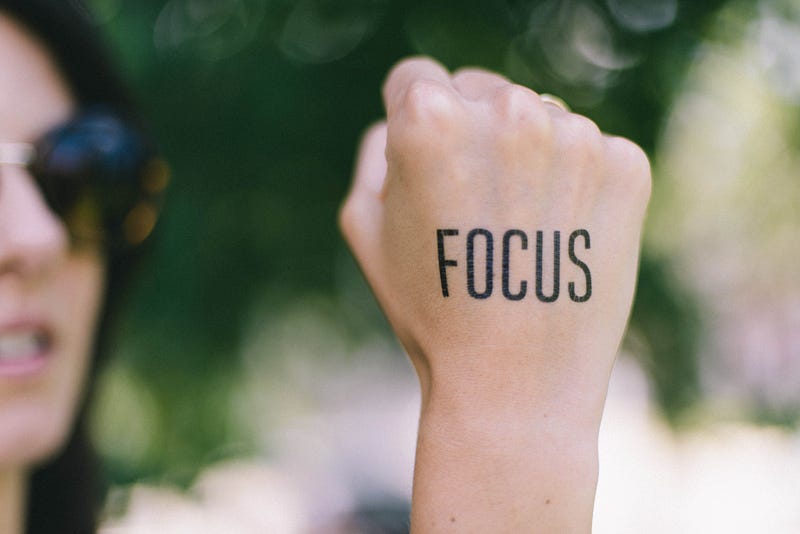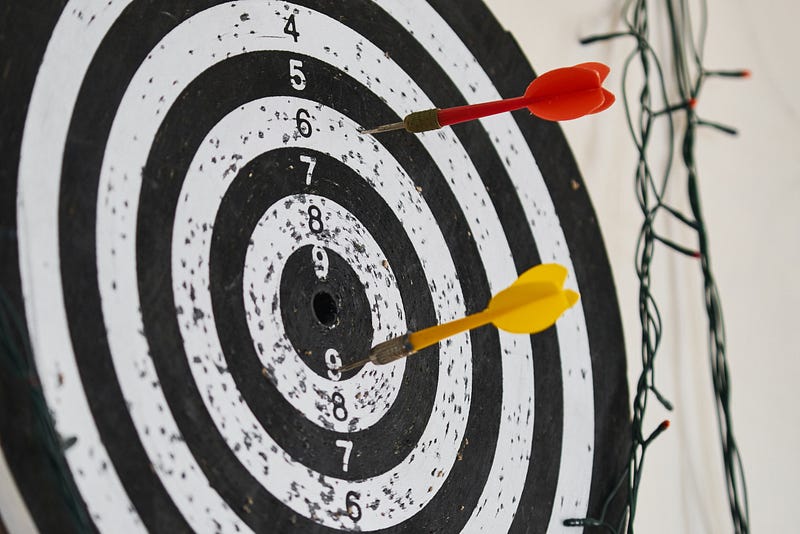Mastering Focus: Essential Tips for Productive Days Ahead
Written on
Chapter 1: The Challenge of Unstructured Time
The more I engage in various tasks, the more productive I become. But what occurs when my calendar is completely empty?

Photo by Chase Clark on Unsplash
If you’re looking for someone efficient, I’m your go-to person. The more responsibilities I have, the more I accomplish. Even if I can’t cross off every item on my to-do list due to unexpected interruptions, I still manage to feel productive.
However, when I wake up to a blank schedule, I often wonder how to fill my time effectively. On days devoid of urgent deadlines, I require a structured approach to navigate the hours. Without clients awaiting my edits or scheduled life coaching sessions, I can easily fall into a state of indecision.
I might spend an excessive amount of time deliberating whether to work at my kitchen table or the desk with a view of the downtown skyline. This is after I’ve already wasted nearly an hour deciding between my bulky desktop, my speedy but temperamental MacBook Pro, or my older model that’s reliable but prone to crashes.
I can easily lose two hours just trying to select a writing project for the day, whether it's editing my supernatural mystery series, drafting a chapter for my Irish historical novel, or outlining a new cozy mystery. Does this resonate with you?
When my schedule is filled with tasks and deadlines, I instinctively grab the first computer I see, settle into the nearest chair, and dive right into my work. This experience highlights my need for structure; I thrive under the pressure of deadlines.
When a client hands me a manuscript and says, "Get it to me whenever," I feel a shudder run down my spine. I need a concrete deadline. I never miss a deadline; however, without one, I often find myself working late into the night, scrambling to finish instead of pacing myself comfortably until the due date.
I’m not referring to leisurely days off. Weekends spent lounging in front of the TV or listening to audiobooks are a rarity for me. Even when I’m caught up with my paid work, I am a writer at heart. I write daily, regardless of circumstances.
During my 9-to-5 years, I would wake up hours early just to work on my novel. I lived for weekends filled with long writing sessions. Since leaving the corporate world, I’ve managed to create my own routine. I stay busy, thanks to the structure imposed by my clients and commitments.
Yet, my most significant obligation after work is to my novels and characters, who often remain neglected until I find a day like today. A day when I can choose where to work and which computer will best suit my writing style.
Fortunately, whenever I feel that familiar twinge of anxiety staring at an empty calendar, I’ve developed techniques to help me focus without relying on a predetermined to-do list.
Chapter 2: Strategies for Overcoming Indecision
I've gained valuable insights through experience. I learned to conquer the anxiety that comes from facing an abundance of time and choices. This knowledge stems from a lesson I learned the hard way, back when I was a spry 57-year-old—what seems like youth to an 82-year-old!
I completed my first marathon thanks to advice from a seasoned runner who told me that it's all in your head. He emphasized that when you set a training goal, you must see it through. Whether your goal is to train for five minutes or five hours, you must push yourself until the very end. If you stop even a minute early, your mind will take control, making future sessions a struggle.
Once you declare your daily goal and meet it, you assert control over your actions. This mindset propelled me, an unlikely athlete, through a grueling 26.2-mile marathon.
Now, let’s talk about the next step: grabbing a notepad and a timer.
The process is straightforward. Set a target.
My target might simply be to spend 15 minutes deciding whether to write in the kitchen or the bedroom, on my desktop or laptop, or to choose between projects. While I often use this technique for writing, it can apply to any task.
The key is to select a target duration that is long enough to accomplish something but short enough to avoid feeling overwhelmed—20 minutes works well for me.
Start the timer and begin.
I’ve learned to prioritize essentials and can work on any computer in my apartment. Typically, I’ll choose a project for the day and jot down a goal—let's say, 2000 words—at the top of the page.
Then, I set the timer for 20 minutes and start writing. When the timer rings, I subtract what I’ve written from my target and reset it for another 20 minutes. I repeat this until I hit my goal. I only take breaks for necessary things like bathroom breaks or a sip of water.
I don’t allow myself to get distracted by research, emails, or texts, nor do I switch to different projects. My sole focus is reaching my target, after which I can turn my attention to other tasks.
Often, I find that I reach my target using this timed approach more efficiently than if I simply decide to write 2000 words at leisure. This method prevents me from aimlessly wandering around my apartment or checking the news or grabbing snacks.
If focus is a struggle for you, I encourage you to give this technique a try. Whenever possible, minimize outside distractions like your phone, internet, and notifications. Commit to your goal. If you’re at 1800 words and feel fatigued, you can write, "I’m tired of writing" for the last 200 words and still hit your target.
What matters is achieving your goal, which can help quiet that inner critic that may not want you to fail but seeks a break from the monotony of writing.
Adhering to this approach will likely make it easier for you to reach your goals over time.
The first video discusses various tools to enhance focus and concentration, providing insights into how to maintain productivity in daily tasks.
The second video outlines the top ten strategies to train your brain for sustained focus and productivity, perfect for those looking to sharpen their concentration skills.

Photo by engin akyurt on Unsplash
The mental gremlin that enjoys disrupting our focus will still be present. However, if it cannot lure us away from our writing for an easy snack, it will eventually relent. You'll find that writing toward your goal becomes easier.
Don't worry; your pesky companion won't disappear entirely. It will likely find new ways to challenge your resolve—perhaps by tempting you to indulge in one more cookie or binge-watch another episode of your favorite show before bedtime.
This isn't a foolproof formula for a perfect life; it’s simply a strategy for managing time effectively and honing in on your objectives. You might even find that you have extra time to enjoy by the end of your day.
The ability to concentrate can be a challenge, often requiring practice. This method has proven beneficial for me, and I hope it serves you well too.
Thank you for reading.
If you enjoyed this article, please consider following me. It’s a wonderful way to support my work and help me connect with you.